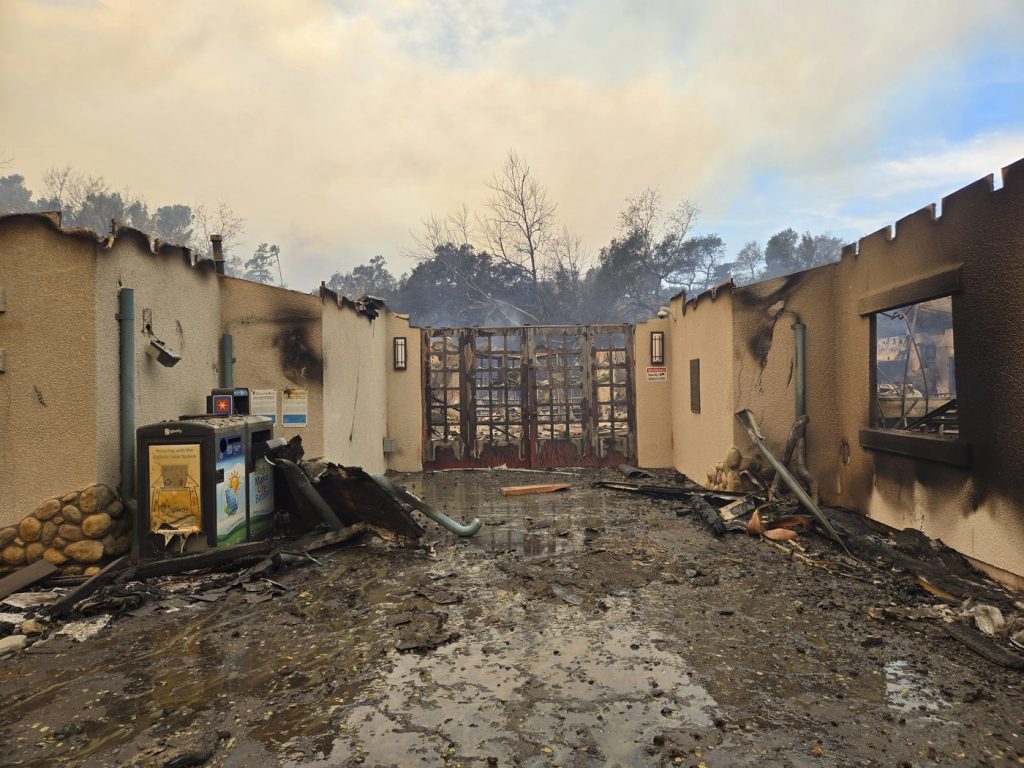During the pandemic, outdoor education served as a refuge for Irina Contreras and her 7-year-old daughter, Ceiba, who participated in activities organized by the kid’s adventure group Hawks and attended Matilija, a bilingual forest school. They explored natural areas like Eaton Canyon Nature Area, a 190-acre preserve near Altadena, California. However, the recent devastating wildfires around Los Angeles destroyed much of the natural environment that provided solace and educational opportunities for families.
For many parents, like Contreras, the loss is deeply felt not only in terms of life and homes but also in the destruction of spaces that served as safe havens for learning. Educational settings, including public and private schools, nature-based preschools, and summer camps, have been severely affected. The fires have also resulted in the destruction of school buildings, such as Odyssey Charter School in Altadena, further impacting the local community.
Senior manager Miguel Ordeñana of the Natural History Museum expressed the gravity of the situation as many families in the community have suffered losses. The emotional struggle to communicate the consequences of the fires to children is challenging, particularly as many friends have lost their homes. In addition to the destruction, areas not directly impacted by the fire are inaccessible due to poor air quality, limiting the opportunities for outdoor learning experiences.
All schools in the Los Angeles Unified School District, the second largest in the nation, closed due to the heavy smoke and ash blanketing the city, affecting classes into the following week. Pasadena Unified School District also announced closures, with several campuses sustaining damage. The California Department of Education reported that 335 schools across multiple counties, including Los Angeles, San Bernardino, and Ventura, were closed, leaving uncertainties about the reopening of schools.
Contreras, who felt confined to screens during the pandemic, recognized the benefits of her daughter’s outdoor education, emphasizing the importance of stepping away from the daily grind. Although uncertain about the timeline, she remains hopeful that outdoor programs will eventually return to areas like Eaton Canyon. However, Richard Smart, superintendent of Eaton Canyon Natural Area, reported extensive damage, stating, “The nature center is gone. The wildflowers, the shrubs are gone.” Previously a place for numerous field trips, the loss of the park is profoundly felt within the community.
Lila Higgins, from the Natural History Museum, noted the importance of nature for children's cognitive development and emotional well-being, stating time spent outdoors is essential for learning and relationships. Despite the challenges posed by the fires, experts agree that outdoor spaces still hold significance for educational experiences, and there is hope for these natural landscapes to regain their role as essential learning destinations in the future.
Greg Pauly, co-author of "Wild L.A.," acknowledged the reality of living in modern Southern California, where fires frequently alter landscapes and impact lives. He affirmed that outdoor interactions will continue, though recovery and restoration will take time. Overall, the recent wildfires have marked a significant setback for educational programs heavily reliant on local natural areas, emphasizing the need for alternative solutions as Los Angeles families navigate this challenging situation.










